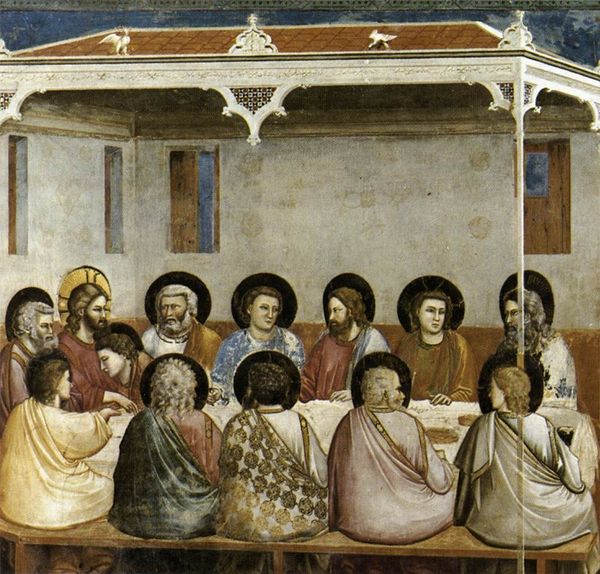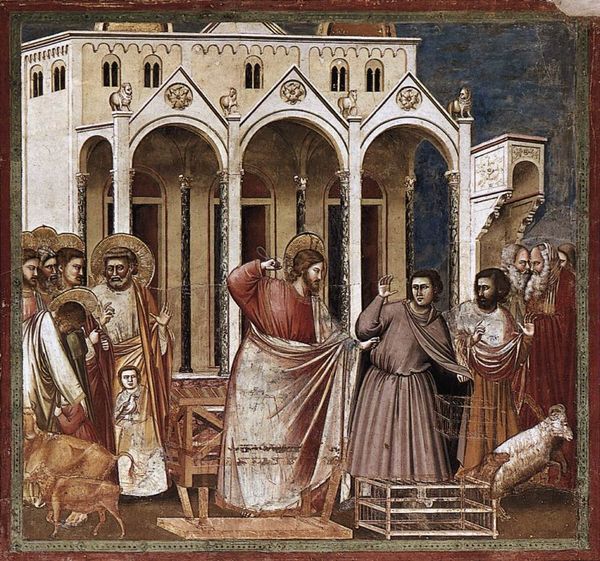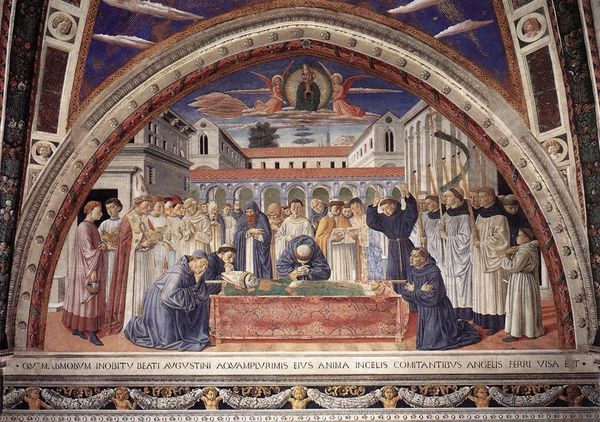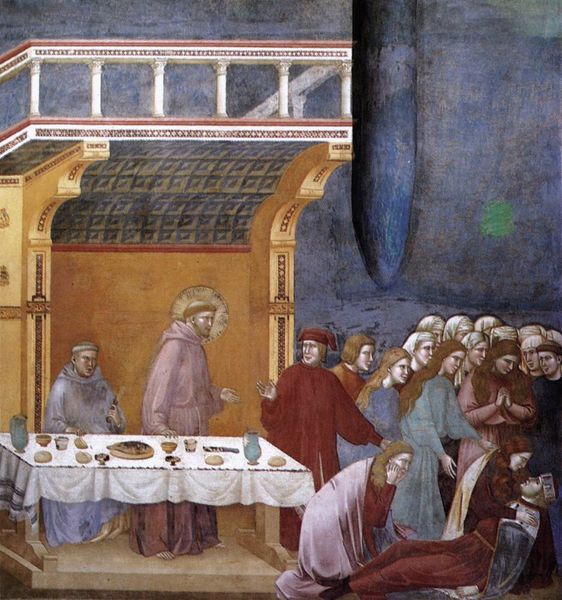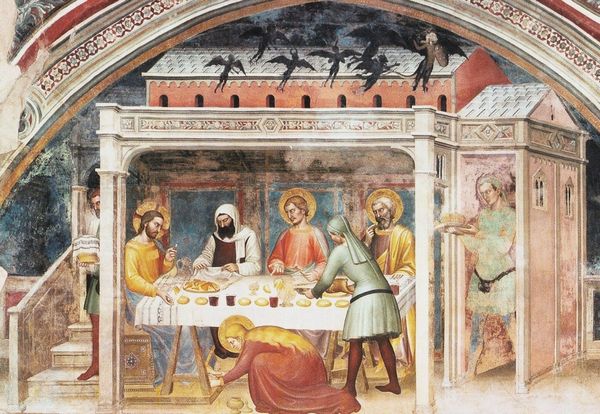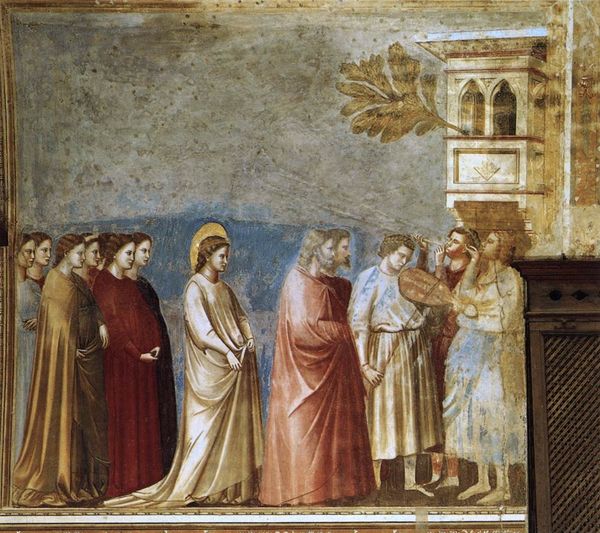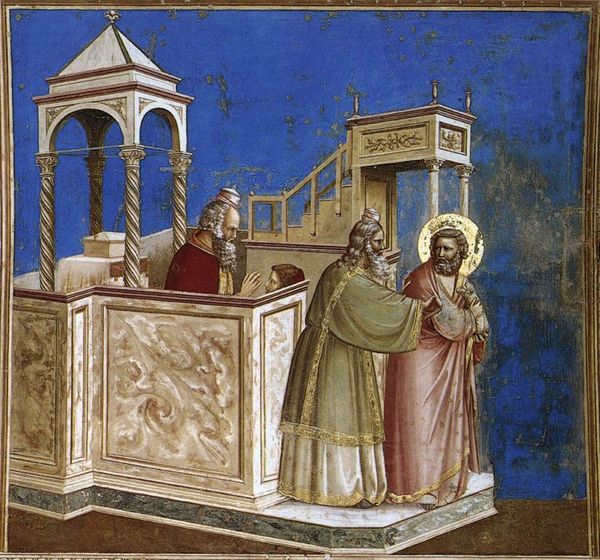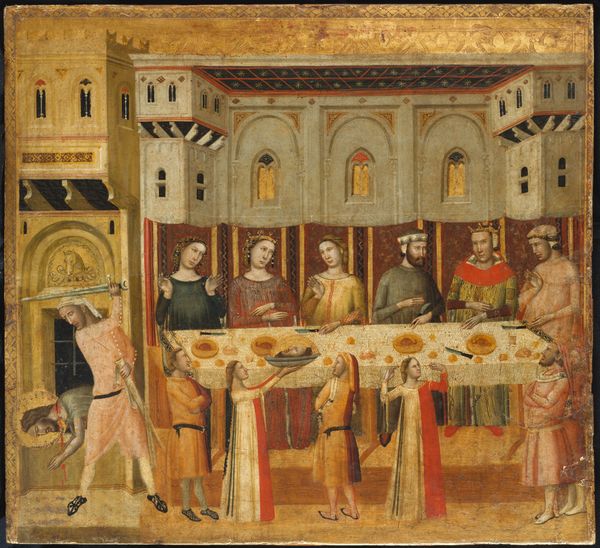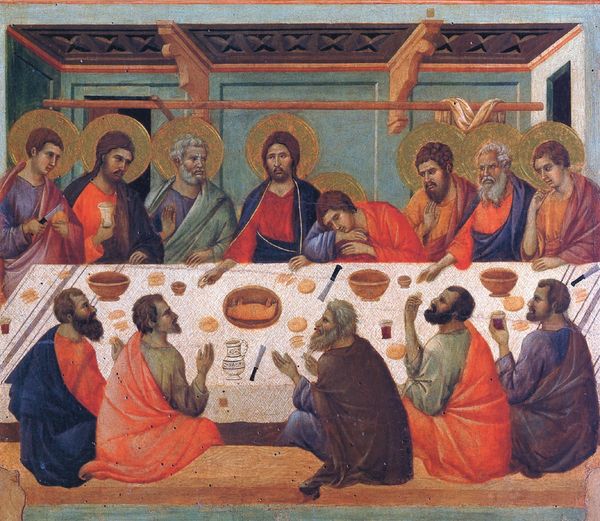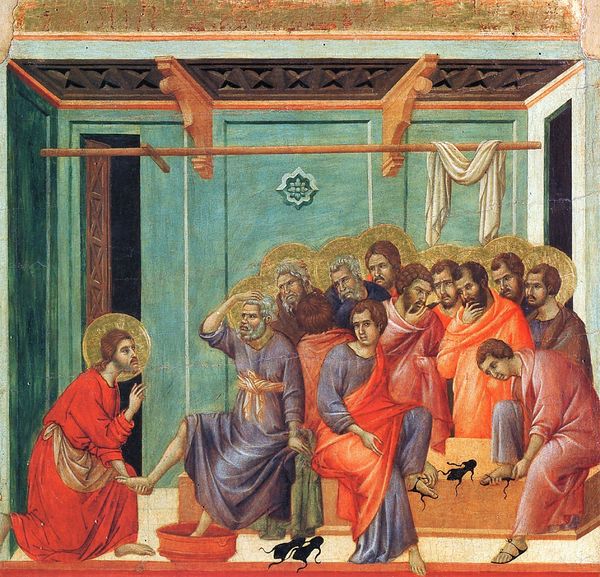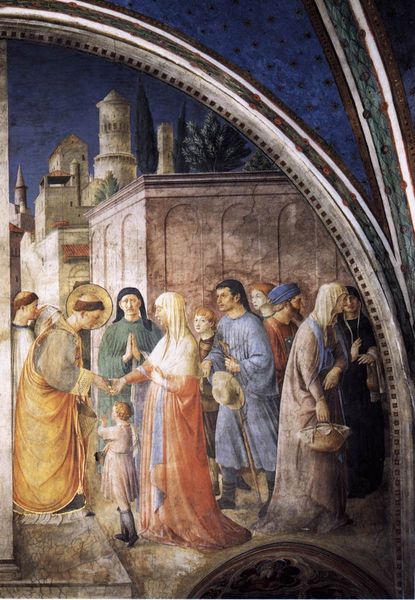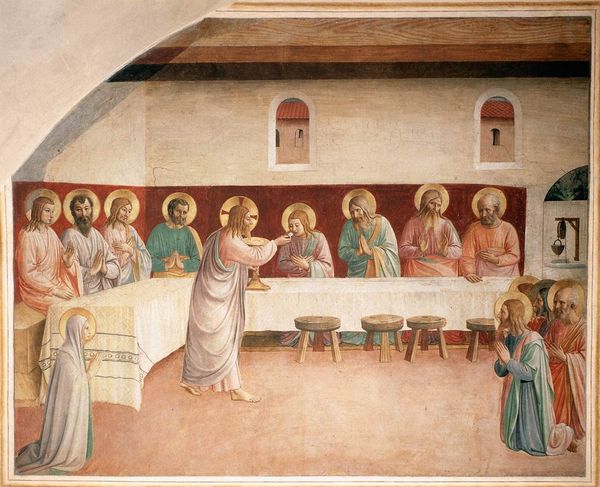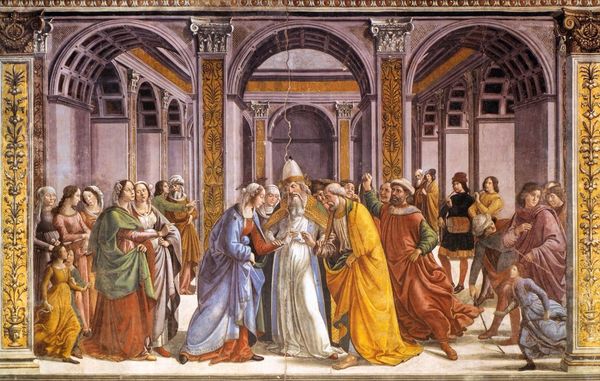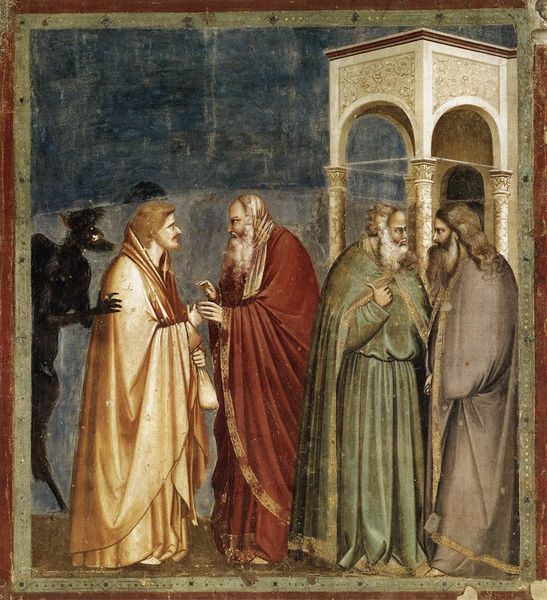
#
aged paper
#
toned paper
#
holy-places
#
traditional architecture
#
jesus-christ
#
earthy colours
#
brown and beige
#
earthy tone
#
christianity
#
neutral brown palette
#
brown colour palette
#
watercolor
#
warm toned green
#
christ
Dimensions: 200 x 185 cm
Copyright: Public domain
Giotto painted "Marriage at Cana" in the early 14th century, as part of his fresco cycle in the Scrovegni Chapel. Painted during a time of rigid social and religious norms, Giotto brings humanity to the biblical narrative. The painting depicts the moment Jesus performs his first miracle, turning water into wine at a wedding feast. Yet, it's the emotional depth and the relatable human interactions that capture our attention. The figures, with their individualized expressions and gestures, invite us into their world, making the divine accessible. Consider the women depicted; they challenge the traditionally passive roles often assigned. They appear as active participants, observing, serving, and engaging in the miracle, asserting their presence in a pivotal moment. The narrative isn't just about faith, it's about the communal experience of witnessing something extraordinary, together. Through "Marriage at Cana," Giotto not only tells a biblical story, but also reflects the intricacies of human relationships, inviting us to reflect on the intersections of faith, community, and personal experience.
Comments
No comments
Be the first to comment and join the conversation on the ultimate creative platform.
